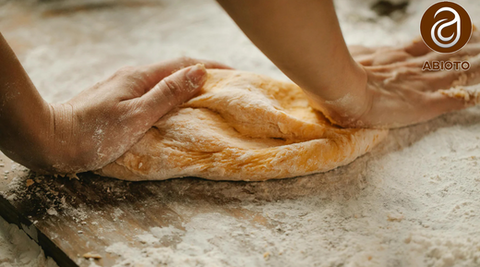When venturing out into the world of bread baking, proper tools are needed to create a home-baked loaf that could stand in the finest bakeries. The most significant bread baker supplies include proofing bowls for bread an important tool in shaping and fermenting your dough to yield its best final texture.
This article explains how the proofing bowl in bread making works and how one should look for or choose it when buying for the best result possible.
The Importance of a Proofing Bowl in Bread Baking
The proofing or fermentation stage is the point at which dough rises and develops flavor. It is the stage at which yeast ferments sugars in dough, producing gas that gives bread a fluffy appearance. The proofing bowl for bread is designed to support this crucial step.
These bowls help retain the shape of the dough while allowing it to rise properly. The curved sides provide even support, ensuring the classic rounded shape of the artisan loaf. They also aid in temperature and humidity control, which are essential factors for optimal fermentation.
Types of Proofing Bowls
When choosing a proofing bowl, you will find a wide range of materials and designs, each with its own advantages:
-
Rattan or Banneton Bowls: Bannetons are the traditional choice of proofing bowls for breads, perfect for rustic breads and sourdough. They wick moisture from the surface of the dough, giving a crust but leaving the characteristic spiral on the bread.
-
Wooden Proofing Bowls: A less common choice, these will provide excellent temperature regulation for your dough and add old-world charm to your bread-making.
-
Plastic Proofing Bowls: Plastic bowls are light in weight and inexpensive, easy to clean and good for beginners. These usually have lids, helping to retain moisture.
-
Ceramic and Glass bowls: They can be used for observing dough that has been rising, and they also are convenient to use as serving bowls.
What to Look for in a Proofing Bowl
The choice of a proofing bowl depends on the type of baking, personal preferences, and the type of bread you are baking. Keep in mind some key points:
-
Size: Ensure the bowl is sufficiently large for the dough to expand. It depends upon the recipe as 9–12 inch diameters will do it all for most recipes.
-
Material: Select materials based on your bread type and climate. For example, rattan works great for crusty loaves while ceramic can be used well in dry conditions.
-
Ease of Cleaning: Plastic and glass bowls are easier to clean than rattan baskets.
-
Visual Appeal: If presentation matters to you, then choose the bowls that are not only effective but also appealing.
Why Choose Abioto for Your Bread Baker Supplies?
Abioto is a trusted name among bread bakers for reliable, quality bread baker supplies. We specialize in artisan bread making tools and offer a highly curated selection of products tailored to both the beginner and the seasoned baker.
High-quality Proofing Bowls: Abioto’s proofing bowls are crafted with great care so that bakers get perfectly risen dough. Made from high-quality, food-grade materials, they ensure your dough rises evenly and holds its form.
Comprehensive Kits: We offer well-curated kits for bread-making, from proofing baskets to scoring tools, so you have everything you need to get started.
Sustainability and Craftsmanship: Abioto focuses on eco-friendly materials, as well as durable designs; therefore, their supplies represent a long-term investment in bakers.
Tips for Maintaining Your Proofing Bowl
Proper care and maintenance will keep your proofing bowl in excellent condition. Cleaning your proofing bowl after each usage is recommended. To clean rattan baskets, a soft brush gently removes any flour or dough residue without damaging the material.
Store your proofing bowl in a dry, well-ventilated space to extend its longevity. Proper storage will protect it from mold and, at the same time, help ensure that the bowl will be ready for your next bake.
Conclusion
Upgrade your bread baker supplies, including high-quality proofing bowls to enhance your baking experience. The right tools will make the process much more enjoyable while also enhancing the quality of your loaves. From a beginner who just wants to start baking bread to someone refining their skills, the right tools can be a significant difference maker.


